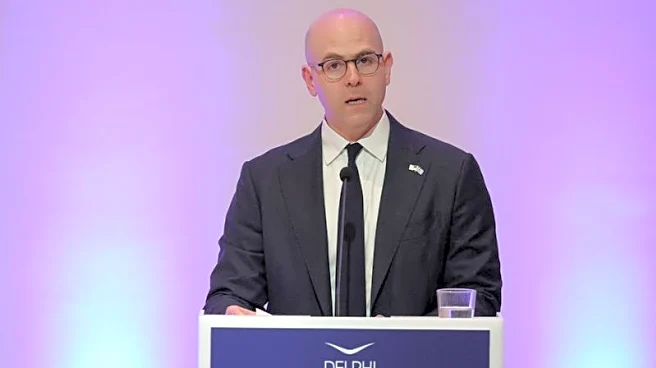What is the story about?
What's Happening?
FIFA Competitions Senior Technical Specialist Alisher Nikimbaev has commented on the decision not to suspend the Israel national team from participating in the 2026 World Cup qualifiers. Nikimbaev stated that while UEFA may want to exclude Israel from official tournaments, the decision ultimately depends on FIFA's stance, which is influenced by the United States. The U.S. is considered Israel's main ally, and FIFA President Gianni Infantino has previously rejected proposals to suspend Israel, emphasizing that FIFA cannot solve geopolitical problems.
Why It's Important?
The situation highlights the intersection of sports and international politics, where geopolitical alliances can influence decisions in global sports organizations like FIFA. The U.S.'s role as a key ally of Israel underscores its influence in international sports governance. This decision could impact the perception of FIFA's neutrality and its ability to manage political pressures. The outcome may affect Israel's participation in international tournaments and could set a precedent for how political issues are handled in sports.
What's Next?
FIFA's decision not to suspend Israel may lead to further discussions and potential actions from other stakeholders, including UEFA and various national football associations. The geopolitical dynamics surrounding Israel's participation in international sports could prompt debates on the role of politics in sports governance. Stakeholders may seek alternative solutions or compromises to address the underlying political tensions.

















